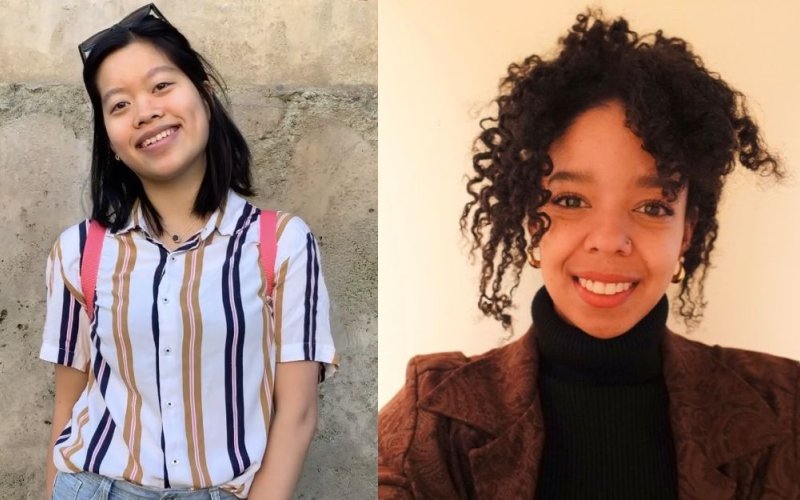Sophomore, Doctoral Student Among Winners of New State Scholarship for Mental Health Professionals

ALBANY, N.Y. (April 20, 2023) — Two UAlbany students are among the first recipients of a new $4 million state scholarship program designed to support underrepresented students working on degrees in the mental health field. Doctoral student Teresa Mejia and undergrad Michelle Dong won the scholarships, Gov. Kathy Hochul announced last week.
The scholarship program, open to SUNY and CUNY students, aims to expand and diversify New York's mental health workforce, “which lacks sufficient representation of ethnic and racial minorities, especially in roles requiring advanced degrees or education-based certifications,” the governor’s office said. Funding comes from a federal grant to the New York State Office of Mental Health.
"Through this partnership with SUNY and CUNY, we are taking a crucial step towards creating a public health care system that is truly reflective of the communities it serves," Gov. Hochul said in a press release announcing the first cohort of 11 SUNY students. "Congratulations to the latest recipients whose dedication to this field will contribute to a healthier, more equitable future for all New Yorkers."
Last August, Hochul announced that SUNY and CUNY each received $2 million from the state Office of Mental Health to support students underrepresented in mental health degree programs. Recipients receive a monetary scholarship, mentorships with mental health professionals, enrichment programs that include presentations by mental health professionals and experts in the field, and internships in mental health facilities or with mental health providers.
UAlbany winners
Michelle Dong, a sophomore majoring in sociology, said she was drawn to the mental health field out of her desire to help people in vulnerable situations by developing therapeutic relationships.
“I think sometimes it can be hard for people to open up to others about their experiences, since it can be hard to be so vulnerable, and I would want to be there to support others,” Dong said. “I've always felt so thankful when someone trusts me enough to open up about something. So, when I realized that as mental health professional, I would be able to be there to support people who could be struggling ‘behind closed doors,’ I realized that the mental health field was something that I would love to be a part of.”
Dong said that after she graduates she plans to continue her studies in a social welfare master’s program and become a licensed clinical social worker. “I hope to have a private practice one day, specifically in a community where there may not be a lot of mental health professionals, so that more people would be able to have access to mental health resources and care.”
Teresa Mejia is a second year doctoral student in clinical psychology who got her undergraduate degree in psychology and neuroscience from the University of Delaware and her master's in education from the Universidad de Alcalá in Spain
“My research focuses on identifying how adverse ecological factors (stress, community violence, trauma) influence psychobiological responses to stress and psychological well-being for racially and ethnically minoritized individuals,” Mejia said. “More specifically, I am interested in examining physiological markers of stress in stress response systems such as the parasympathetic and sympathetic nervous systems, and identifying the underlying processes that may act as risk or resiliency factors among these populations.”
Mejia ultimately plans to work as a clinical psychologist providing treatment assessments to English and Spanish speaking patients, and as a researcher examining stress and its impact on racially and ethnically minoritized populations.
“Through both my clinical and research work, my long-term goal is to integrate this work to better support interventions and treatment efficacy for diverse populations,” she said.




